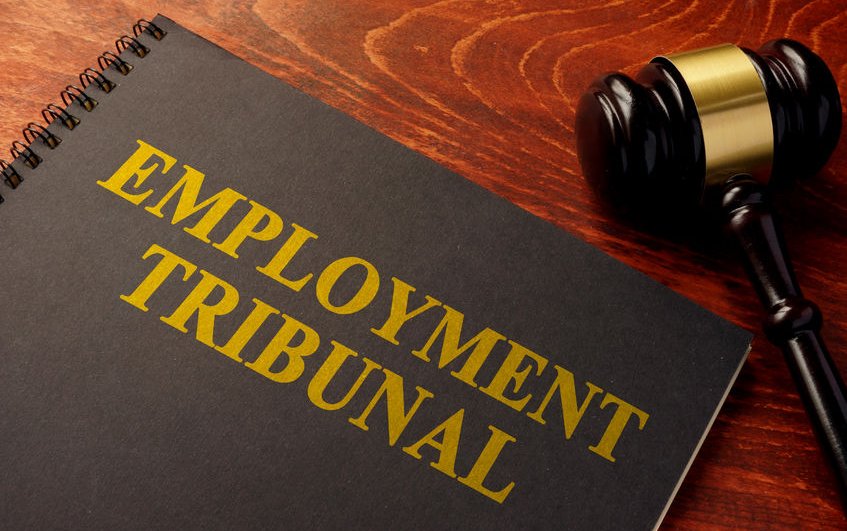If you’re concerned about the significant spike in Employment Tribunal claims in recent years, it's not time to breathe out just yet, as quarterly statistics from the Ministry of Justice spell even more bad news for employers.

This latest round of figures, which allow us to compare the period from July to September 2019 with the same quarter last year, reveal that the fallout from the Supreme Court’s decision to abolish fees is yet to subside – if indeed it does at all.
So, what exactly do the quarterly statistics tell us about the current claims landscape?
Greater risk of a claim
Following the predicted forecast, the key point to take away is that single claim receipts are up 38%, from 8,680 claims lodged between July and September 2018 to 12,007 during this same period in 2019. Not only is this a considerable increase year on year, but the last instalment of quarterly statistics, which allowed us to compare April to June 2018 to April to June 2019, revealed a smaller 16% increase, further highlighting that the number of cases involving one individual bringing a claim against an employer continues on an upwards trajectory.
Disposals aren’t keeping pace with new claims
Meanwhile, disposals (cases completed in one way or another) increased by just 4%. With 38% more claims received, one might expect that roughly 38% more claims would be completed, if the system is efficient; however, this is evidently not the case. Add in the fact that the number of claims outstanding increased by 40%, all of this is indicative of a sluggish system that is struggling to keep up with demand.
Indeed, a report from the Employment Lawyers Association earlier this year painted a bleak picture of a painfully long and drawn-out process characterised by delays, transfers and cancellations. These latest statistics, then, speak to the current state of the Tribunal system and the higher costs for those who find themselves embroiled in the claims process.
Types of claim
Equal pay, unfair dismissal and unauthorised deduction from wages were the most common complaints received, accounting for 6,184, 5,261 and 4,541 claims respectively. These were also the big three in the same period last year; however, if there is a positive slant to these latest statistics, it’s that all three have declined in number year on year (by 18%, 16% and 35% respectively).
Overall, comparing types of claim year on year, it was a mixed picture, with some experiencing a notable rise on last year (religion or belief discrimination +17%, age discrimination +21%, National Minimum Wage +59%) while others declined (Working Time Directive -31%, written statement of reasons for dismissal -36%, TUPE failure to inform and consult -50%, sex discrimination -71%).
What does it all mean?
Naturally, further evidence that claims culture is progressing is concerning for employers, not only in relation to the direct costs involved in dealing with a claim in terms of legal fees and compensation but also the time these situations demand, which inevitably incurs further expense. In fact, in our own experience, we would expect an average Employment Tribunal case to eat up about 20 hours of an employer’s time – even with an Employment Law specialist handling the bulk of the work – or 60 to 80 hours if they are required to attend as a witness. This is an outlay that any employer would hope to avoid.
Of course, while you can’t account for every eventuality, there are a number of fundamental ways to reduce your changes of receiving an Employment Tribunal claim, from ensuring your recruitment and selection practices are effective in selecting the right candidate, to knowing your policies inside out (and applying them consistently), to simply treating people fairly and with respect. That said, employment law is constantly evolving, and even with the best intentions, employers’ actions or inaction can unwittingly leave them exposed to legal risk. With this in mind, ensuring you receive the right support can make all the difference when it comes to protecting your organisation against the stress, disruption and cost of a defending a claim.

James Tamm
Director of Legal Services
Expert Comment
The worrying trend of ever-increasing Tribunal claims shows no signs of slowing. As mentioned previously, the greatest concern is that there is still plenty of room for claims numbers to inflate further before they reach the old pre-fee levels of 2012. It’s a very risky environment at the moment, which is why it pays to make sure you take advice from an expert before taking action against your employees.
Dramatically reduce your risk
At Ellis Whittam, we’re consistently high achievers when it comes to defending claims.
Owing to our unrivalled quality of service and the expertise of our advisers, our employer win rate for FY19 was 82%. With a dedicated adviser in your corner to guide you through the process, you’re over eight times more likely to win a Tribunal claim if advised by Ellis Whittam.
To find out how our fixed-fee support can help to protect your business against legal risk, call 0345 226 8393.






